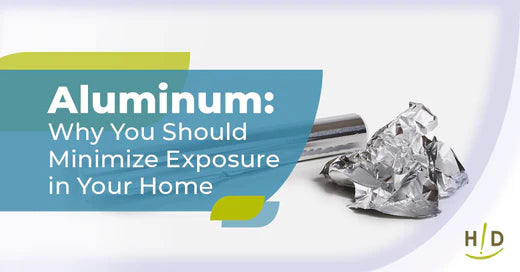Many health professionals agree that aluminum is a dangerous neurotoxin that can impact various biological functions within humans, animals, and plants. Researchers have been working hard to understand the relationship between aluminum exposure and neurodegenerative diseases. As you begin to see this connection, you will understand why it is so important to minimize aluminum exposure in your home.
Aluminum Exposure and Health Problems
Various research studies have looked at the way aluminum impacts the human body, and the results are shocking. When a person is exposed to aluminum, they have a higher risk of developing Alzheimer's Disease, Multiple Sclerosis, Parkinson's Disease, and breast cancer. Additionally, aluminum exposure can lead to a wide range of health symptoms, including: headaches, memory loss, emotional instability, nervousness, sleep problems, digestive issues, impaired kidney function, colic, impaired liver function, anemia, speech problems, muscle aches, and loss of bone density.
Aluminum exposure can be detrimental to overall health.
Natural health practitioners have long discussed the fact that aluminum can lead to serious health concerns. Now that science is catching up to prove the merit to these warnings, it is important that you take a proactive approach to reduce your aluminum exposure.
Aluminum Sources in Your Home
You might be surprised to learn how much aluminum is present in your home right now. These are a few things that you need to watch for:
- Kitchen Equipment: Cookware, aluminum foil, pans, pots, and utensils often contain aluminum. If you are using an aluminum pot, then the compounds can soak into your food. Be cautious of aluminum teapots and kettles as well, because the aluminum might seep into your tea.
- Food Additives: A number of processed food products contain aluminum, such as prepared dough, flour, pickles, baking powder, table salt, processed cheese, and more.
- Personal Care Products: Common types of beauty products and personal care items have aluminum, which is absorbed into your skin each time you use the product. Possible sources include lip balm, sunblock, soap, shampoo and conditioner, cosmetics, body lotion, deodorants, nasal spray, and toothpaste.
- Medication: Your daily medication might be increasing your aluminum exposure. Examples of medications with aluminum include antacids, painkillers, hemorrhoid treatments, anti-diarrheal medications, and aspirin.







